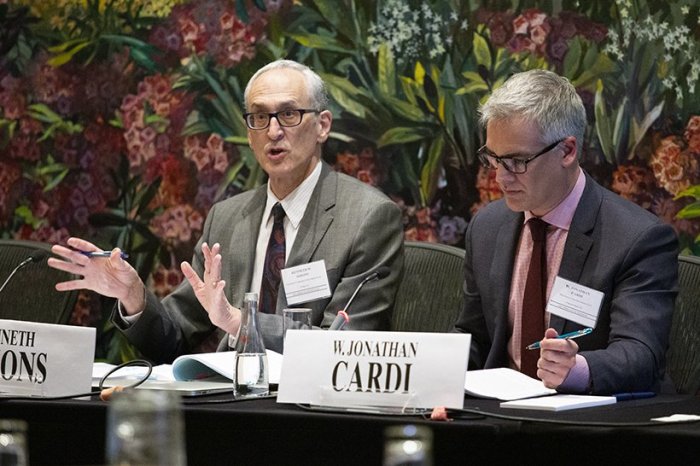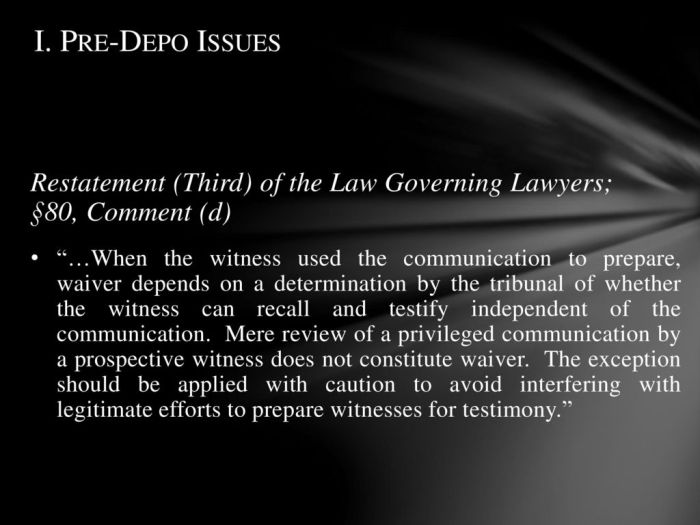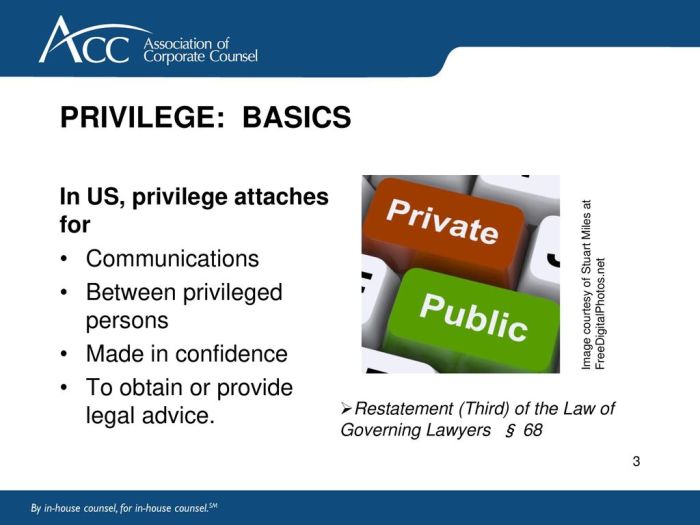Restatement third of law governing lawyers – The Restatement Third of the Law Governing Lawyers, a cornerstone of legal ethics, establishes a comprehensive framework for the conduct of attorneys. This authoritative guide, recognized throughout the legal profession, provides invaluable insights into the duties, responsibilities, and ethical obligations of lawyers.
This treatise delves into the intricacies of lawyer-client relationships, exploring the fundamental principles of loyalty, competence, and confidentiality. It examines the complexities of conflicts of interest, outlining the rules and best practices for navigating these challenging situations.
1. Restatement Third of the Law Governing Lawyers
Overview
The Restatement Third of the Law Governing Lawyers is a comprehensive treatise that sets forth the principles governing the ethical conduct of lawyers. It is a restatement of the common law as it has developed over time, and it provides guidance to lawyers on a wide range of issues, including their duties to clients, conflicts of interest, lawyer advertising and solicitation, fee arrangements, professional responsibility, and discipline of lawyers.
Purpose and Scope of the Restatement Third
The Restatement Third is intended to provide a clear and concise statement of the law governing lawyers. It is designed to help lawyers understand their ethical obligations and to guide them in their practice. The Restatement Third is also a valuable resource for judges, law professors, and legal scholars.
Significance of the Restatement Third
The Restatement Third is a significant work in the legal profession. It is the most comprehensive and up-to-date statement of the law governing lawyers. The Restatement Third is also influential in the development of the law. Courts and legislatures often rely on the Restatement Third when making decisions about the ethical conduct of lawyers.
2. Duties of Lawyers to Clients

Lawyers owe a number of duties to their clients, including the duty of loyalty, competence, and confidentiality.
Duty of Loyalty
The duty of loyalty requires lawyers to act in the best interests of their clients. This means that lawyers must put their clients’ interests ahead of their own interests. Lawyers must also avoid conflicts of interest that could impair their ability to represent their clients.
Duty of Competence
The duty of competence requires lawyers to provide competent legal services to their clients. This means that lawyers must have the knowledge, skill, and experience necessary to represent their clients effectively.
Duty of Confidentiality
The duty of confidentiality requires lawyers to keep their clients’ secrets confidential. This means that lawyers cannot disclose information about their clients’ cases to third parties without their clients’ consent.
3. Conflicts of Interest

Conflicts of interest arise when a lawyer’s personal interests conflict with the interests of their client. Conflicts of interest can arise in a variety of situations, such as when a lawyer represents multiple clients with conflicting interests or when a lawyer has a personal interest in the outcome of a case.
Rules Governing Conflicts of Interest
The Restatement Third sets forth a number of rules governing conflicts of interest. These rules are designed to protect clients from being harmed by conflicts of interest.
Common Conflicts of Interest, Restatement third of law governing lawyers
Some of the most common conflicts of interest include:
- Representing multiple clients with conflicting interests
- Having a personal interest in the outcome of a case
- Being related to or romantically involved with a client
- Having a financial interest in a client’s business
Resolving Conflicts of Interest
When a conflict of interest arises, a lawyer must take steps to resolve the conflict. The lawyer may do this by withdrawing from the representation, by obtaining the client’s consent to the conflict, or by taking other steps to mitigate the conflict.
4. Lawyer Advertising and Solicitation: Restatement Third Of Law Governing Lawyers

Lawyer advertising and solicitation is the practice of lawyers marketing their services to potential clients. The Restatement Third sets forth a number of rules governing lawyer advertising and solicitation.
Ethical Considerations
There are a number of ethical considerations involved in lawyer advertising and solicitation. Lawyers must avoid making false or misleading statements in their advertising. They must also avoid targeting vulnerable populations, such as the elderly or the poor.
Permissible Advertising Practices
Some of the most common permissible advertising practices include:
- Placing ads in newspapers, magazines, and other publications
- Creating a website
- Sending direct mail to potential clients
- Participating in speaking engagements and other public events
Impermissible Advertising Practices
Some of the most common impermissible advertising practices include:
- Making false or misleading statements
- Targeting vulnerable populations
- Using deceptive tactics to solicit clients
Questions and Answers
What is the purpose of the Restatement Third of the Law Governing Lawyers?
The Restatement Third provides a comprehensive and authoritative statement of the law governing the conduct of lawyers, offering guidance on ethical obligations, duties to clients, and professional responsibilities.
How does the Restatement Third address conflicts of interest?
The Restatement Third establishes clear rules and best practices for identifying and resolving conflicts of interest, ensuring that lawyers maintain their ethical obligations to their clients and the legal system.
What are the ethical considerations involved in lawyer advertising?
The Restatement Third provides guidance on the ethical boundaries of lawyer advertising, emphasizing the importance of truthfulness, accuracy, and avoiding misleading or deceptive practices.